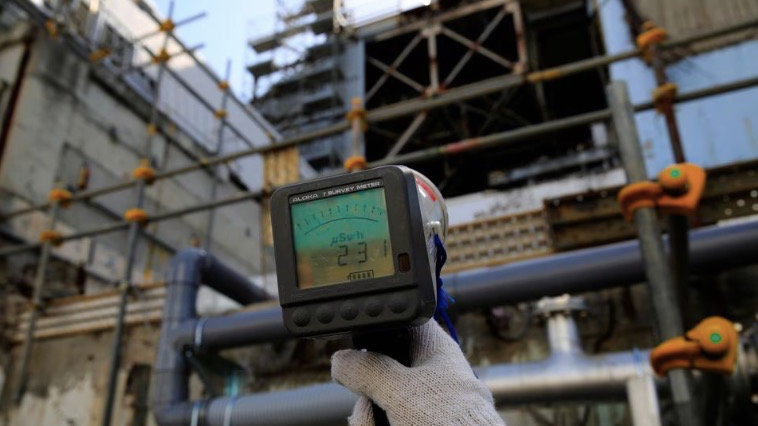
A Geiger counter shows a radiation level of 231 microsieverts per hour near the damaged No. 3 reactor building at the tsunami-crippled Fukushima Daiichi nuclear power plant in Fukushima prefecture, Japan, March 1, 2021. /CFP
A Geiger counter shows a radiation level of 231 microsieverts per hour near the damaged No. 3 reactor building at the tsunami-crippled Fukushima Daiichi nuclear power plant in Fukushima prefecture, Japan, March 1, 2021. /CFP
Pacific island nations are urging Japan to delay the release of water from the destroyed Fukushima nuclear power plant over fears fisheries will be contaminated, the Pacific Island Forum (PIF) said on Wednesday.
The Japanese government said last week that water from the destroyed Fukushima nuclear power plant could be released into the sea "around this spring or summer," raising concerns from island nations still grappling with the legacy of nuclear testing decades ago.
Japan had approved the future release of more than 1 million tonnes of water from the site into the ocean after treatment in April 2021.
The PIF, a regional bloc of 17 island nations, argues the release of the water could have a major impact on fishing grounds that island economies rely on, and where up to half of the world's tuna is sourced.
"Our region is steadfast that there be no discharge until all parties verify it is safe," PIF Secretary General Henry Puna said on Wednesday at a livestreamed public meeting in Suva, Fiji.
"We must prevent action that will lead or mislead us towards another major nuclear contamination disaster at the hands of others," he added, saying Pacific islanders continued to endure the long-term impacts of the nuclear testing legacy on a daily basis.
Source(s): Reuters